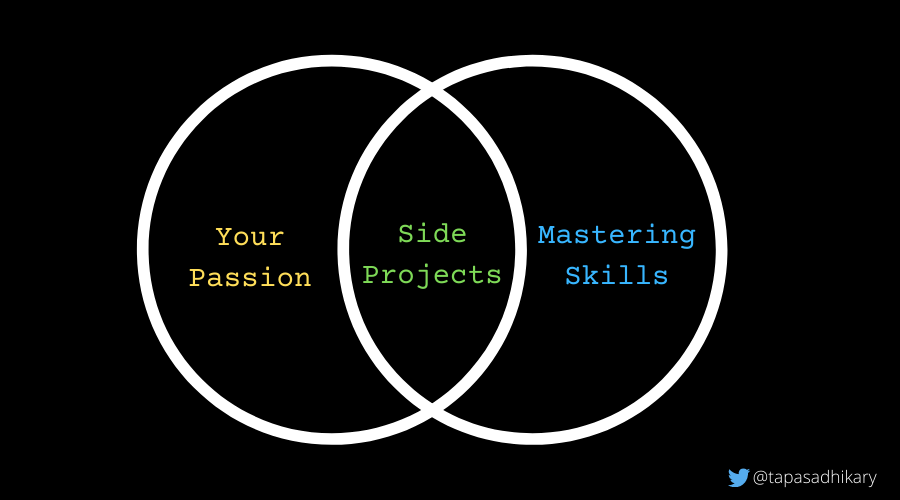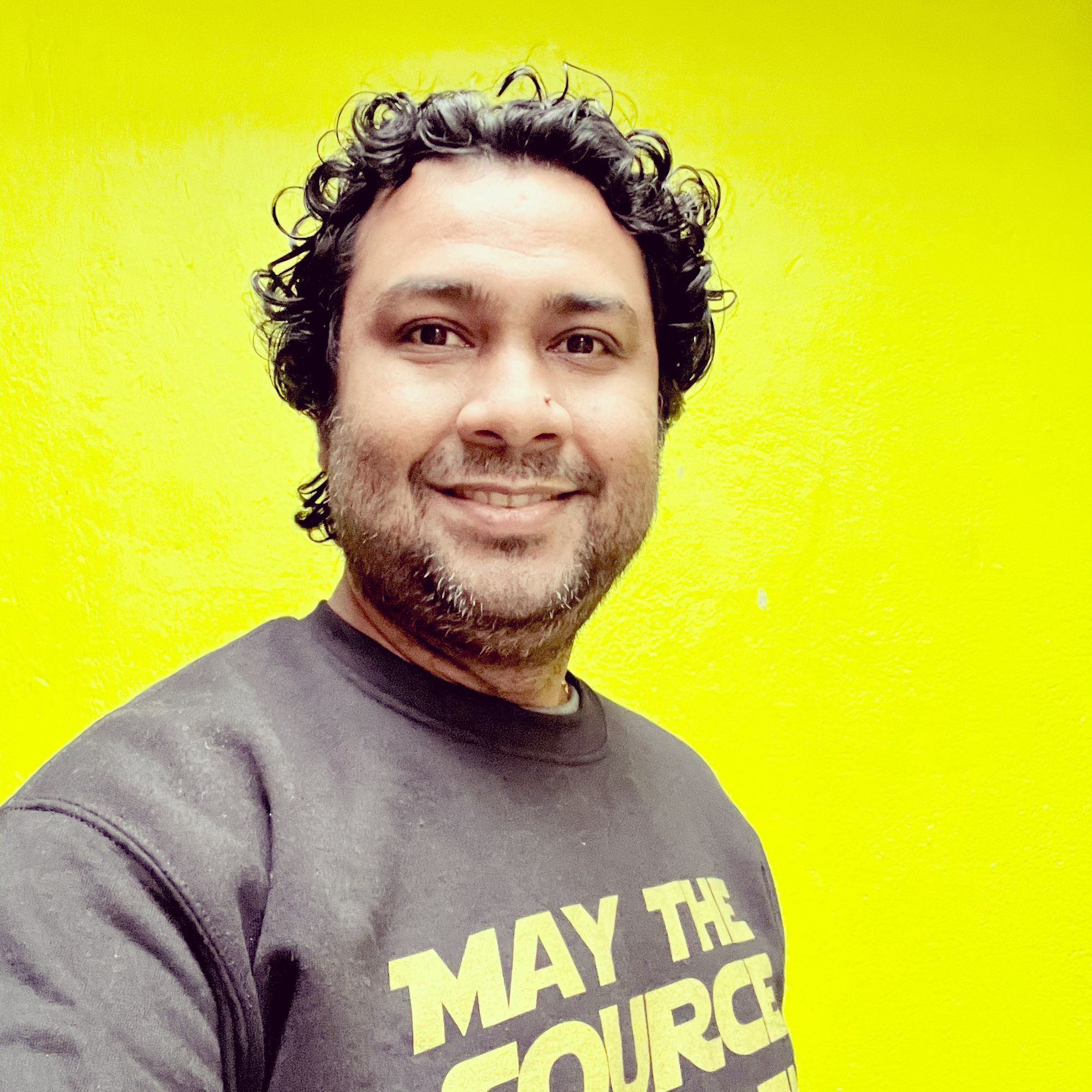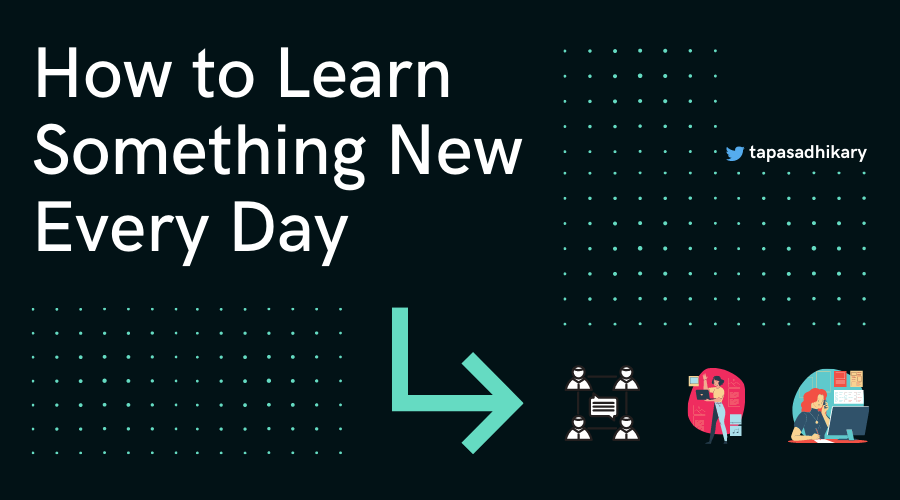As software developers, we must be willing to learn continuously. While it helps us accomplish our day-to-day tasks at work, it is equally important to stay up to date with new technologies and innovations.
After spending 12+ years in software development, I've found it challenging to keep learning consistently. But if you identify what you're passionate about and follow a solid learning path, you'll learn new things all the time.
This article will discuss three important areas of developer education that you may find useful in your learning journey. I have been following this path for the last two years and I've seen very positive results.
TL;DR
Become a better learner and developer by:
- Being an active part of the developer community
- Starting your own blog
- Building side projects
This article is all about experience sharing and how to make these things happen. Just chill and read it with an open mind 🧘.
Be an Active Part of the Developer Community
When we focus all our attention on something, learning becomes easy. The challenging part, though, is to know what to learn.
Where should we find help? Is there a better way to solve certain problems? How do we not reinvent the wheel? And finally, how do we make it happen continuously?

Being part of one or more developer communities in your areas of interest helps solve these challenges in a significant way.
Don't worry if you do not have anything to contribute in the early days. Just hang in there and soak up information, connect with like-minded people, observe best practices, and so on. You will eventually contribute, and that comes naturally.
Here are the developer communities, learning platforms, and social media outlets that I've found immensely helpful. Please note that opinions are mine, and some of you may not agree or might want to add more to the list. That's perfectly fine, and you are welcome to do so.
- Twitter: When it comes to staying relevant with technologies, soft mentoring, and getting quick tips and tricks, Twitter is a great platform. If you don't have one already, create a Twitter account and join the platform. Follow topics that interest you (using hashtags) and people who post about things you want to learn more about to get started.
I've had a dormant Twitter account since 2009! I started using it actively a year ago and can tell you how useful it is. - freeCodeCamp: If you are looking for focused learning, give freeCodeCamp a try. There are thousands of hours of study materials available, and it's free! You should join the forum to get insights, answers, and solutions. You can earn free verified certifications as well. If you are reading this article, you are probably aware of the freeCodeCamp curriculum already.
- Hashnode: This is one of the fastest-growing developer communities out there today. Once you join Hashnode, you can follow the tags and community members of your choice to see articles, discussions, and more in your feed. Another USP is that you get a free blogging domain where you can write your articles and publish them.
- Dev.to: a mature developer community with many contributors who write articles, discusses topics, and share thoughts. You can follow the topics of your interest to create a personalized feed.
- daily.dev: This is not precisely a community yet, but rather an aggregator of many. It does an excellent job of bringing you a list of hot articles you might be interested in without looking for them. Just install their browser extension, and you are all set to go.
Apart from those I mentioned above, LinkedIn, Reddit, Hackernoon, Code Newbie, Women who code, StackOverflow, and Hackernews are other fantastic communities to look out for.
Start Your Own Blog (or Something Equivalent)
Teaching and sharing knowledge is the best way to gain more knowledge. It is a universal truth that you can not teach a topic well without learning it well.
Having a technology blog (or something like a YouTube channel) can help you participate in the learning-sharing cycle.

My key takeaways from blogging for the last couple of years are:
- Your research on a topic helps you gain more knowledge about it.
- You get better visibility in the developer community by contributing to that community.
- You create a series of knowledge bases for yourself that you can refer to or use (maybe as a speaker, in a video, and so on).
- If you are a non-English speaker and write your articles in English, it helps you get a better grasp of the language.
- You can create a strong portfolio for yourself by mentioning your blog. I found that this is beneficial when you pitch to writing for publications like freeCodeCamp News.
- Last but not least, you can earn money from your articles. Some publications pay you per article. You can be a guest writer for certain organization's blogging programs. If you are just getting started with blogging, do not put much emphasis on earning money. Focus on delivering useful content to the community. Then financial opportunities will come naturally.
If you are thinking about starting a blog with your own domain, check out Hashnode. It has everything you need as a blogging platform, and it is free. If you have an existing domain, you can map that to it too. So give it a try.
Alternatively, you can publish on dev.to, Hackernoon, and other communities I mentioned above. You can also apply to become a writer on freeCodeCamp News.
Build Some Side Projects
An effective way to polish your learning and fuel your passion is by doing side projects. In many cases, you may not be able to work on any technology you like at work. But no one can stop you from doing a side project using that tech.

A side project can help you:
- Live your passion
- Generate ideas
- Learn new skills
- Grow in new areas
- Contribute to the open-source community
- Earn rewards and money

So how do you get started? First, you should create an account with GitHub (or any other source code repository manager).
Next, you need an idea of what to build. Start small, and plan to do many projects. Try making something that you may want to use.
Then identify what you've learned from it, document it as an article, and publish it.
Before we go
I hope you've found this article insightful, and that it motivates you to check out these learning areas. I would like to hear from you. Let's connect.
You will find me active on Twitter (@tapasadhikary). Please feel free to follow me. You can read some of the other articles from my blog (blog.greenroots.info). All my side projects are in GitHub (atapas), and they are open-source. Please feel free to try/fork/follow.
You may also like:

